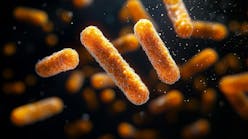Vanderbilt-Ingram Cancer Center and Insight Genetics partner to improve breast cancer diagnosis and treatment
Insight Genetics, Inc., is collaborating with Vanderbilt-Ingram Cancer Center (VICC) to enhance how researchers and oncologists classify and treat patients diagnosed with triple-negative breast cancer (TNBC). The molecular diagnostics company is working with VICC scientists to identify genetic markers that will help select the targeted therapeutics most effective for each individual TNBC patient.
The American Cancer Society estimates that more than 230,000 women will be diagnosed with an invasive form of breast cancer in 2014. Many of these cases can be genetically characterized as Estrogen Receptor (ER)-positive, Progesterone Receptor (PR)-positive, or HER2-positive. These characterizations assist clinicians in matching patients with targeted therapeutic options. Breast tumors that do not express genes for any of these three known markers are classified as triple-negative breast cancers. Patients with TNBC currently have limited treatment options and a higher risk of relapse than those with other forms of the disease.
Recent work by Jennifer A. Pietenpol, PhD, director of the Vanderbilt-Ingram Cancer Center, and colleagues, published in the Journal of Clinical Investigation, used an algorithm to examine gene expression data from more than 500 TNBC cases and identified up to six distinct sub-types of triple-negative breast cancers. Insight Genetics and Dr. Pietenpol will now focus on identifying novel genetic drivers for these various TNBC sub-types and developing a better understanding of effective treatment options for each. The work is also designed to identify new TNBC biomarkers and develop assays based on these biomarkers.
“We are enthusiastic to be entering into this research collaboration and licensing agreement with Vanderbilt,” says Eric Dahlhauser, Chairman and CEO of Insight Genetics. “Dr. Pietenpol’s work shows tremendous promise for identifying unique treatment options for each molecular sub-type of triple-negative breast cancer.”





